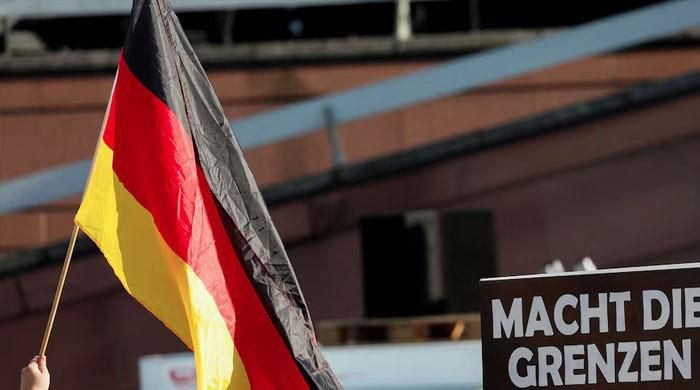Germany's government announced plans to impose stricter controls at all of the country's land borders in what it called an attempt to tackle irregular migration and protect the public from threats such as extremism.
Controls within what is normally a vast area of free movement – the European Schengen zone – will begin on September 16 and initially last six months, Interior Minister Nancy Faeser said on Monday.
The government has also drawn up a plan that allows authorities to turn back more migrants directly at German borders, Faeser said, without adding details about the controversial and legally problematic measure.
The restrictions are part of a series of measures Germany has taken to toughen its stance on irregular migration in recent years following a surge in arrivals, particularly of people fleeing war and poverty in the Middle East.
Chancellor Olaf Scholz's government is seeking to take back the initiative from the far-right opposition and conservatives, whose support has surged as they tap into voter concerns about limited public services, integration and security.
“We are strengthening internal security and continuing our tough line against irregular migration,” Faeser said, noting that the government had notified the European Commission and neighbouring countries about the planned controls.
Recent knife attacks involving asylum seekers have fuelled concerns about immigration. The Daesh group claimed responsibility for a knife attack in the western city of Solingen in August that left three people dead.
Earlier this month, the AfD became the first far-right party since World War II to win a state election in Thuringia, after campaigning intensively on the issue of migration.
Polls show it is also the main concern of voters in the state of Brandenburg, which holds elections in two weeks.
The centre-left Social Democrats (SPD) of Scholz and Faeser are battling to retain control of the government there, in a vote billed as a test of the SPD's strength ahead of next year's federal election.
“The government's intention seems to be to symbolically show Germans and potential immigrants that they are no longer welcome here,” says Marcus Engler of the German Research Centre for Integration and Migration.
A test for Europe
According to migration experts, a backlash has been brewing in Germany since it took in more than a million people, most of them fleeing war-torn countries such as Syria during the 2015/2016 migration crisis.
It reached a turning point in the country of 84 million people after automatically granting asylum to around a million Ukrainians fleeing the 2022 Russian invasion, even as Germany struggled with an energy and economic crisis.
The German government has since agreed to enforce stricter deportation rules and resumed flights of convicted criminals of Afghan nationality to their home country, despite suspending deportations after the Taliban seized power in 2021 due to human rights concerns.
Last year, Berlin also announced stricter controls on its land borders with Poland, the Czech Republic and Switzerland. These controls, as well as checks on the border with Austria, had allowed it to return 30,000 migrants from October 2023, it said on Monday.
Faeser said a new model would allow the government to roll back many more, but he could not discuss the model before confidential negotiations with the Conservatives.
The checks could put European unity to the test if they lead German authorities to ask other countries to take back significant numbers of asylum seekers and migrants.
Under EU rules, countries in the Schengen area, which covers the entire bloc except Cyprus and Ireland, can only introduce border controls as a last resort to prevent threats to internal security or public order.
Germany shares its more than 3,700-kilometre (2,300-mile) land border with Denmark, the Netherlands, Belgium, Luxembourg, France, Switzerland, Austria, the Czech Republic and Poland.
Austrian Interior Minister Gerhard Karner told Bild newspaper on Monday that his country would not accept any migrants turned away by Germany at the border.
“There is no room for manoeuvre there,” he said.
The measures may not immediately result in many more migrants being turned away at the border, but they could lead to more pushbacks to other European countries in the future, as well as acting as a deterrent, said Susan Fratzke of the Migration Policy Institute.
The number of asylum applications in Germany fell by 21.7 percent in the first eight months of the year, according to government statistics.












